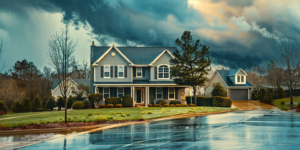Many people believe the housing market will stay solid for a long time because of record-low stock, interest rates, and demand, just as many people believed the housing market would crash at the beginning of the COVID-19 pandemic in March 2020. We do not know for sure what is going to happen, and as recent events have shown us, nothing remains static for too long. However, what we do know is that there are some significant problems facing the economy
We think that while we would all very much like this housing market boom to hang around for a long time, it will suddenly drop out when we are least expecting it and take us all by surprise.
If you are thinking about buying or selling a property and are trying to gauge the right time to do it, you may be worried about going in too early, or completely missing the boom altogether. It is understandable; after all, you want the most bang for your buck. Perhaps you want to upgrade your home to facilitate a new working from home schedule, or are looking into buying to rent, in which case you also need to think about rental property management too. What you need to be thinking about are the overall dynamics of the housing market, which we will cover briefly below.
The 2008 Credit Crisis: What We Learned
In 2008, which feels a million years from where we are today but in reality was not that. long ago, the country was plunged into a huge credit crisis. This created regulations that prevented a lot of homeowners from doing what they wanted. Remembering this time is key because the crisis was caused by the housing market.
Those who were old enough to remember that dark period have not forgotten the problems that it caused to the economy as a whole and their personal finances, and this drives our responses to future economic events. The 2008 crisis led to tighter restrictions on borrowing money, which in turn led to the highest amount of equity in homes in history.
If the market rises and people are unable to access their home equity, equity value will rise. It may also cause consumers to use credit cards more frequently and at higher interest rates.
What is Going to Happen Next?
The housing market cannot be jubilant while the economy is tanking. One or the other has to happen, and after more than fourteen years of growth, at some point, the housing market will almost certainly slow down at some point.
Talk of higher interest rates or increased stock will hurt the market, and housing demand may eventually slow after the pandemic effect, especially if we see a return to city environments.
American citizens must understand that the housing market will not remain as hot as it is today indefinitely. Rates and inventory will not remain this low forever. Furthermore, the government will soon shift its focus from legislative priorities such as foreclosure relief to other areas such as infrastructure.
Previous cycles have shown us that rates will rise once the economy becomes more stable. The stronger the economy, the more likely interest rates will rise, construction will increase, and sales will slow. Regardless of whether the economy improves or deteriorates, we believe the housing market will slow, attitude will change, and prices will fall.




